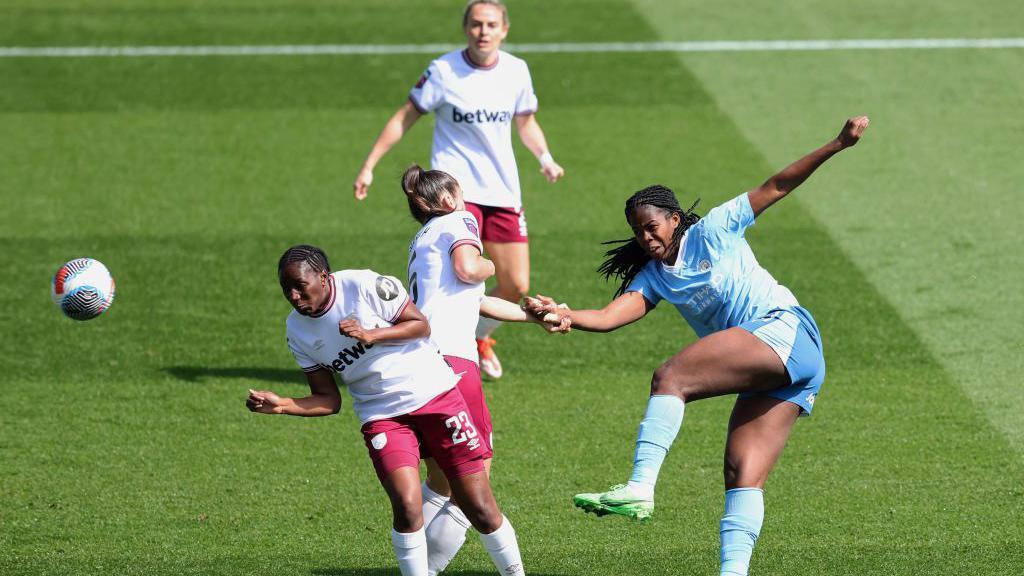WSL top scorer Shaw out for season with foot injury

Khadija Shaw scored twice in the first half against West Ham before being forced off with a foot injury
- Published
Manchester City striker Khadija Shaw has been ruled out for the remainder of the season with a foot injury.
Shaw is the Women's Super League top scorer this season with 21 goals in 18 games.
But the Jamaica international will miss the remainder of the campaign after injuring her foot during City's 5-0 WSL victory over West Ham last Sunday.
"It is difficult for Bunny [Shaw's nickname], as she has had an incredible season," City manager Gareth Taylor said.
Man City forward Hemp signs new deal until 2027
- Published26 April 2024
Man City cruise past West Ham to move top of WSL
- Published21 April 2024
Who will come out on top in WSL title race?
- Published15 May 2024
Shaw is eight goals ahead of second-placed Lauren James in the WSL golden boot race and is City's record goal-scorer.
Her absence, after suffering the injury towards the end of the first half against West Ham, is a major blow to City's attempts to win a first WSL title since 2016.
Taylor, however, backed City's other attacking players to step up in Shaw's absence.
"Bunny is our main number nine, but Mary [Fowler] has played there, Lauren [Hemp] has played there. Chloe [Kelly] is capable of playing there, Jess [Park] can do a really good job there," he said.
"Of course, we all understand what Bunny brings, she is such a box player, she gives us a different way of playing. Now we will have a different kind of number nine."
WSL leaders City could go six points clear of reigning champions Chelsea if they beat bottom club Bristol City this Sunday, although they would have played two games more than the second-placed Blues.
Shaw is the latest important City player to suffer a serious injury this season.
Key midfielder Jill Roord is out with an anterior cruciate knee ligament injury, as is back-up goalkeeper Sandy MacIver. England international keeper Ellie Roebuck is also out after suffering a stroke earlier this season.
Taylor said the stresses of an intense schedule for elite women's footballers had played a role in City's injury woes.
"We are really confident in what we have in the group, but of course we want everyone available," he said.
"It's the demands on the players these days, the different environments - from club football, to international and back to the club, all different training environments and programmes, which means unfortunately players get these types of injuries."